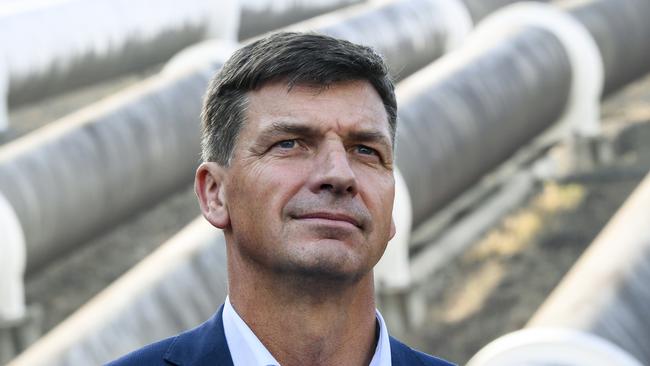Energy Minister predicts power price fall on July 1
Power prices will fall when large operators set their annual tariffs on July 1, says Federal Energy Minister.

Power prices will fall when the nation’s largest electricity operators set their annual tariffs on July 1 as part of the industry’s commitment to lower bills, Energy Minister Angus Taylor predicts.
While the Coalition has pledged to cut electricity prices and introduce new rules to hand consumers a fairer deal on their bill, wholesale tariffs remain high.
The average wholesale power spot price in the national electricity market soared to $115 per megawatt hour for the three months ending March 31 due to higher volatility in Victoria and South Australia, marking a 42 per cent jump on the same period in 2018.
On a state basis, spot prices soared by 62 per cent in Victoria, 49 per cent in Tasmania, 40 per cent in South Australia, 37 per cent in NSW and 23 per cent in Queensland on the prior period.
However, the government said both standing and market offers would fall when the annual pricing is revealed mid-year.
“The default market offer is coming in and the standing offers will go down,” Mr Taylor said on the sidelines of an American Chamber of Commerce event in Sydney today. “We expect continuing downward pressure on both standing offers and market offers and we think its incumbent on the industry to do the right thing.”
A pricing inquiry by the Australian Competition & Consumer Commission last year found the average household could save up to 25 per cent on their power bill or up to $415 a year.
“We want to see prices come down,” Mr Taylor said. “The ACCC made clear that with their recommendations we should expect to see a 25 per cent reduction in prices over time. Give or take in each individual market and that’s what we expect to see in the coming years as a result of the initiatives we implemented,
Yet while the country’s electricity industry is facing pressure from the government to signal lower tariffs ahead of a federal election on May 18, the chances of sizeable discounts appear remote with industry players seeing elevated wholesale prices persisting longer than originally thought.
EnergyAustralia said last month it had expected wholesale power prices to be lower than current levels, but had yet to form a view on the trajectory of retail power bills ahead of new tariffs to be introduced from July 1. Rival Origin Energy said it was too early to predict whether retail bills would rise or fall. Annual bill changes will likely be released in early June — after a federal election — and about a month before tariffs are set in stone.
Mr Taylor also said the government was determined that AGL Energy’s plan to retire its Liddell coal-fired power station in 2022 did not repeat the market chaos that ensued after the closure at short notice of Engie’s Hazelwood plant in 2017.
“We don’t want to see a repeat of what happened with Hazelwood where we didn’t just lose the capacity but we essentially lost, through a change in bidding strategy, 1000 megawatts of capacity out of the system. And that had disastrous impacts. There’s no question when you look at the numbers prices went up substantially.”
AGL grabbed an extra $832 million or 60 per cent jump in gross profits from its wholesale electricity business after the closure of the Hazelwood plant in Victoria, analysis by the Victoria Energy Policy Centre found last month.
The shuttering of the Hazelwood facility with just four months notice caused turmoil in the national electricity market with about a quarter of supply closed which large power retailers then capitalised on through their dominant market positions, the report found.
Mr Taylor also repeated his criticism of Labor’s carbon cap saying aluminium smelters, refineries and fertiliser manufacturers could be forced offshore as a result of its plan.
Labor has proposed to lower the threshold for inclusion in the Coalition’s carbon plan from 100,000 tonnes of carbon emissions a year to 25,000 tonnes a year and Mr Taylor said the policy would also deter companies currently just below the 25,000 tonne threshold from investing in their businesses further.

